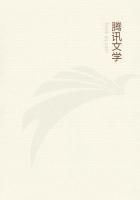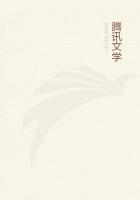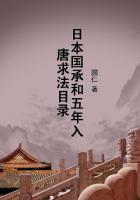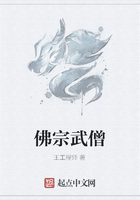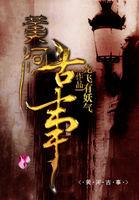Winter among the Mandans Before finally selecting the spot on which to build their winter quarters, Lewis and Clark held councils with the chiefs of the tribes who were to be their neighbors during the cold season.
These were Mandans, Annahaways, and Minnetarees, tribes living peacefully in the same region of country. The principal Mandan chief was Black Cat; White Buffalo Robe Unfolded represented the Annahaways, and the Minnetaree chief was Black Moccasin. This last-named chief could not come to the council, but was represented by Caltahcota, or Cherry on a Bush. The palaver being over, presents were distributed.
The account says:--"One chief of each town was acknowledged by a gift of a flag, a medal with the likeness of the President of the United States, a uniform coat, hat and feather. To the second chiefs we gave a medal representing some domestic animals and a loom for weaving; to the third chiefs, medals with the impressions of a farmer sowing grain.
A variety of other presents were distributed, but none seemed to give them more satisfaction than an iron corn-mill which we gave to the Mandans.
. . . . . . . . .
In the evening the prairie took fire, either by accident or design, and burned with great fury, the whole plain being enveloped in flames.
So rapid was its progress that a man and a woman were burned to death before they could reach a place of safety; another man, with his wife and child, were much burned, and several other persons narrowly escaped destruction.
Among the rest, a boy of the half white breed escaped unhurt in the midst of the flames; his safety was ascribed to the great medicine spirit, who had preserved him on account of his being white. But a much more natural cause was the presence of mind of his mother, who, seeing no hopes of carrying off her son, threw him on the ground, and, covering him with the fresh hide of a buffalo, escaped herself from the flames.
As soon as the fire had passed, she returned and found him untouched, the skin having prevented the flame from reaching the grass on which he lay."
Next day, says the journal,--"We were visited by two persons from the lower village: one, the Big White, the chief of the village; the other, the Chayenne, called the Big Man: they had been hunting, and did not return yesterday early enough to attend the council.
At their request we repeated part of our speech of yesterday, and put the medal round the neck of the chief. Captain Clark took a pirogue and went up the river in search of a good wintering-place, and returned after going seven miles to the lower point of an island on the north side, about one mile in length.
He found the banks on the north side high, with coal occasionally, and the country fine on all sides; but the want of wood, and the scarcity of game up the river, induced us to decide on fixing ourselves lower down during the winter.
In the evening our men danced among themselves, to the great amusement of the Indians."
It may be said here that the incident of a life saved from fire by a raw-hide, originally related by Lewis and Clark, is the foundation of a great many similar stories of adventures among the Indians. Usually, however, it is a wise and well-seasoned white trapper who saves his life by this device.
Having found a good site for their winter camp, the explorers now built a number of huts, which they called Fort Mandan. The place was on the north bank of the Missouri River, in what is now McLean County, North Dakota, about sixteen hundred miles up the river from St. Louis, and seven or eight miles below the mouth of Big Knife River. On the opposite bank, years later, the United States built a military post known as Fort Clark, which may be found on some of the present-day maps.
The huts were built of logs, and were arranged in two rows, four rooms in each hut, the whole number being placed in the form of an angle, with a stockade, or picket, across the two outer ends of the angle, in which was a gate, kept locked at night.
The roofs of the huts slanted upward from the inner side of the rows, making the outer side of each hut eighteen feet high; and the lofts of these were made warm and comfortable with dry grass mixed with clay, Here they were continually visited during the winter by Indians from all the region around.
Here, too, they secured the services of an interpreter, one Chaboneau, who continued with them to the end.
This man's wife, Sacajawea, whose Indian name was translated "Bird Woman," had been captured from the Snake Indians and sold to Chaboneau, who married her. She was "a good creature, of a mild and gentle disposition, greatly attached to the whites."
In the expedition she proved herself more valuable to the explorers than her husband, and Lewis and Clark always speak of her in terms of respect and admiration.
It should not be understood that all the interpreters employed by white men on such expeditions wholly knew the spoken language of the tribes among whom they travelled.
To some extent they relied upon the universal language of signs to make themselves understood, and this method of talking is known to all sorts and kinds of Indians. Thus, two fingers of the right hand placed astraddle the wrist of the left hand signifies a man on horseback; and the number of men on horseback is quickly added by holding up the requisite number of fingers.
Sleep is described by gently inclining the head on the hand, and the number of "sleeps," or nights, is indicated by the fingers.
Killed, or dead, is described by closed eyes and a sudden fall of the head on the talker's chest; and so on, an easily understood gesture, with a few Indian words, being sufficient to tell a long story very clearly.
Lewis and Clark discovered here a species of ermine before unknown to science. They called it "a weasel, perfectly white except at the extremity of the tail, which was black."
This animal, highly prized on account of its pretty fur, was not scientifically described until as late as 1829.
It is a species of stoat.



